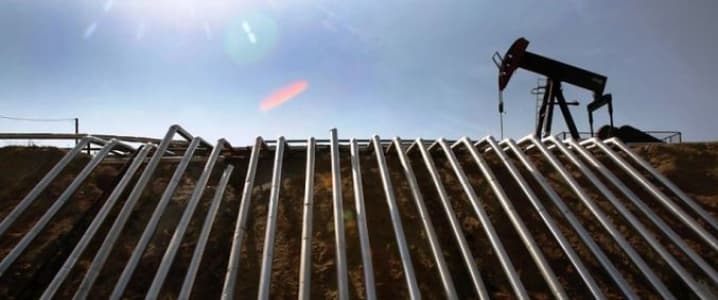U.S. shale oil companies are filing for bankruptcy at an alarming rate, whereas, their counterparts in Argentina are having a gala time. When the U.S. shale oil drillers were struggling to earn $39 per barrel of oil, Argentina was offering $67.5 per barrel to their producers.
Due to the oil price crash, the world’s capital spending in oil and gas has reduced by approximately 20 percent in 2015. By comparison, U.S. oil and gas companies have reduced spending by 40 percent last year, according to Moody’s Investors Service.
On the other hand, Argentina’s state-run oil company YPF increased spending by only 4 percent during the same period.
Is this model of regulated oil prices in Argentina replicable in the U.S.?
Though this seems to be a good solution, this is not sustainable or beneficial in the long-term. Related: Wells Fargo Reduces 66% of Credit Lines to Oil and Gas Players
Prior to 2014, when oil prices were high, the cost of U.S. shale oil production was estimated to be between $70-$90/b, according to different analysts. But when crude prices declined, shale oil producers were forced to innovate and reduce costs, which has decreased the cost of production to $60/b in the third quarter of 2015.
As the oil prices continued to drop further, shale drillers continued to modernize, further reducing the cost of production in 2016.
Along with the technological advances, the productivity of the companies has also increased. They are utilizing their manpower wisely and funds prudently.
The world is recognizing the need for cleaner fuels and a preference to move away from fossil fuels. Hence, there are many experts who believe that oil prices are unlikely to touch $100/b again.
On the other hand, the biggest oil trading company, Vitol, has forecast a likely range of $40-$60/b for the next decade. Had the U.S. protected the shale oil producers, they would not have taken steps to cut costs.
The high prices paid to the oil companies in Argentina is borne by the consumers. Such a practice in the U.S. would have reduced the disposable income available to American households. Related: Why Cheap Shale Gas Will End Soon
“It may not have a huge effect on the top 10 percent of households, but if you’re earning $30,000 or $40,000 a year and drive to work, this is a big deal,” said Guy Berger, United States economist at RBS back in January 2015, when crude prices were close to the current prices of $49/b.
Now that the shale oil drillers have considerably reduced production costs, if crude oil prices rise even to $60-$70/b, they will reap windfall profits. Their longevity has increased, and they are here to stay.
ADVERTISEMENT
As a result, following Argentina’s approach is not long-term positive for the industry. U.S. shale oil companies have drastically cut costs in order to survive, ensuring that they will be competitive over the long-term.
By Rakesh Upadhyay of Oilprice.com
More Top Reads From Oilprice.com:
- Does The U.S. Have A Plan For The Post-Oil Era?
- 2015 Worst Year For Oil Discoveries Since 1952
- OPEC Head Calls for $65 Oil


















